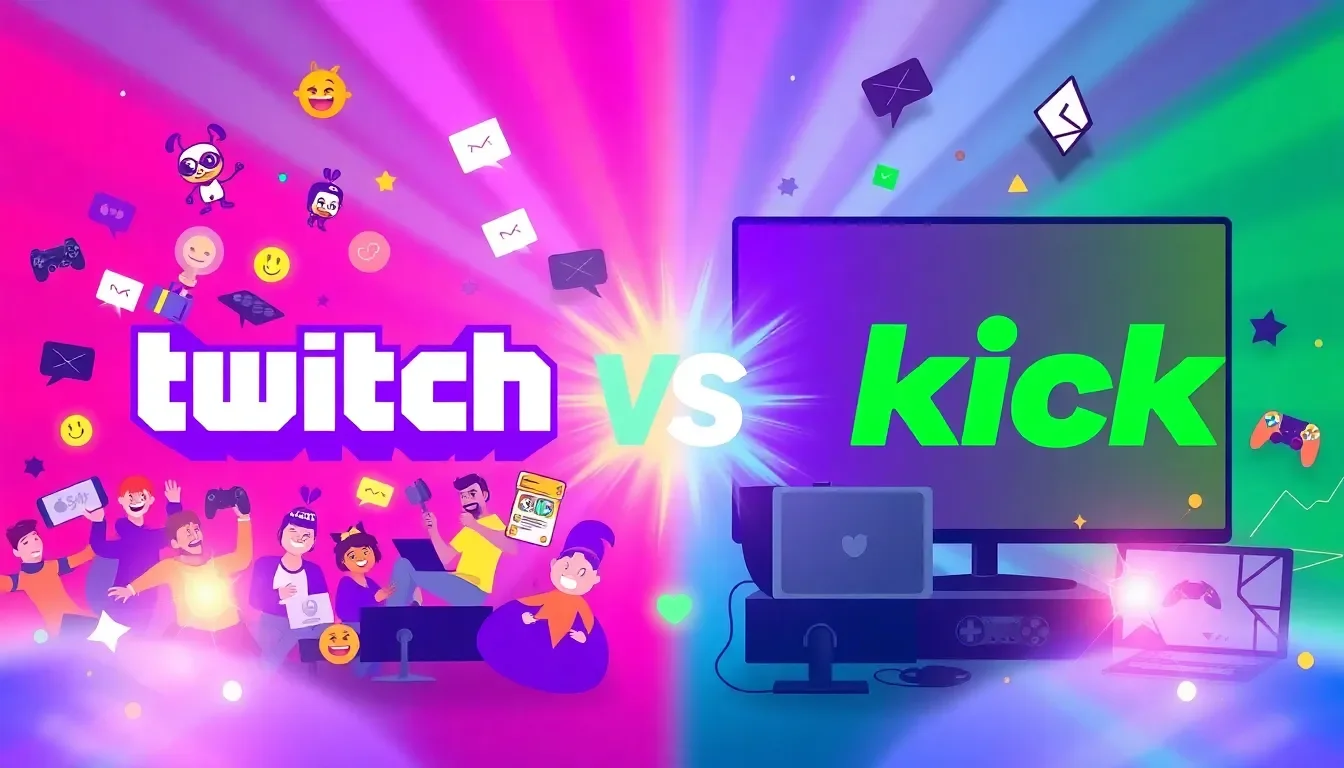For gamers and content creators alike, the landscape of live streaming has never been more diverse or competitive. With platforms like Twitch and Kick rising to prominence, streamers are faced with difficult choices as they navigate their online presence. Each of these platforms offers unique features, catering to different audiences and styles. In this article, we'll delve into the pros and cons of Twitch and Kick, helping you choose the right platform for your streaming journey.
Twitch: The Streaming Giant
Twitch has been the frontrunner in the live streaming industry for over a decade. Its vast audience and extensive features make it a prime choice for many streamers. One of the most significant advantages of Twitch is its established community. With millions of active users and countless channels, streamers have the opportunity to reach a wide audience quickly. The platform also provides features such as raid functionalities, chat commands, and various monetization options, including ad revenue, subscriptions, and donations. These features allow streamers to engage with their audiences and generate income from their passion.
However, Twitch is not without its drawbacks. The platform is notorious for its stringent rules surrounding copyright and DMCA violations, which can lead to content takedowns or account suspension. Additionally, streamers often find it challenging to grow their channels amidst the crowded market, as larger streamers dominate visibility. The recent changes to Twitch's revenue sharing model have also sparked criticism, with many creators expressing concerns over decreased earnings.
Community Engagement
One of Twitch's strongest suits is its culture of community engagement. The platform thrives on interaction, offering streamers numerous tools to connect with their audience — from live chat to community challenges. Many successful Twitch streamers build intense followings by not just playing games, but by fostering a sense of belonging among their viewers. This interactive environment makes returning to a live stream more enticing, creating a loyal viewer base.
Yet, this same engagement can lead to burnout for creators who feel pressure to maintain a constant streaming schedule or interact with their audience extensively. The expectations set by both viewers and the platform can be overwhelming, prompting some streamers to step away altogether.
Kick: The New Contender
Kick is emerging as a fresh alternative in the streaming landscape. With a user-friendly interface and appealing monetization options, it’s attracting attention from a variety of streamers. One significant advantage of Kick is its revenue-sharing model, which is more favorable compared to Twitch. Creators retain a larger percentage of their earnings, making it a more lucrative option for many. Additionally, Kick has positioned itself as a platform that champions free speech and creativity, providing a welcoming environment for diverse content.
Despite its promise, Kick is still in its infancy, which can pose challenges for new streamers. The overall audience is smaller than that of Twitch, making it harder to gain visibility. The platform is still working to establish a strong community and set of tools for streamers. As Kick grows, the uncertainty surrounding its longevity may deter some creators from fully committing.
Content Variety
Kick’s approach to content is refreshing. The platform encourages varied programming beyond just gaming streams, allowing creators to branch out into music, art, and lifestyle content. This flexibility can attract a broader audience and provide creators with the freedom to explore their interests without the constraints typical of other streaming platforms.
However, the diversity in content can also dilute the platform's identity, potentially alienating hardcore gaming fans who might be more at home on Twitch. For Kick to succeed, it will need to carve out its niche while simultaneously catering to the different types of creators and audiences.
Comparing the Features
When choosing between Twitch and Kick, it’s essential to consider the specific features that matter most to you as a creator.
Monetization: Kick offers a better revenue-sharing model, while Twitch provides multiple monetization avenues but at a higher cost for creators.
Community Interaction: Twitch excels in community engagement tools, but Kick is still working on developing this aspect.
Content Freedom: Kick allows more freedom in the content type you share, catering to diverse interests, whereas Twitch primarily focuses on gaming.
Visibility: Twitch has a larger audience, presenting more visibility opportunities, but it also means facing stiff competition.
These features cater to different segments of streamers and viewers, making the choice between Twitch and Kick a subjective one.
Conclusion
Choosing between Twitch and Kick ultimately depends on your specific needs and aspirations as a streamer. If you're looking for a well-established platform with a robust community and are comfortable navigating its complexities, Twitch may be your best bet. Alternatively, if you're drawn to a newer platform with favorable monetization and the freedom to express diverse content, Kick could be the ideal choice. As both platforms evolve, it will be intriguing to see how they adapt to creator demands and community growth, influencing the future of live streaming.


